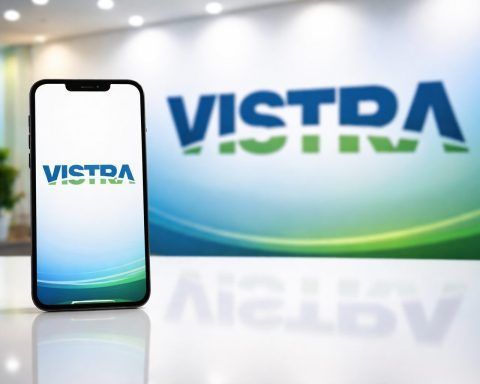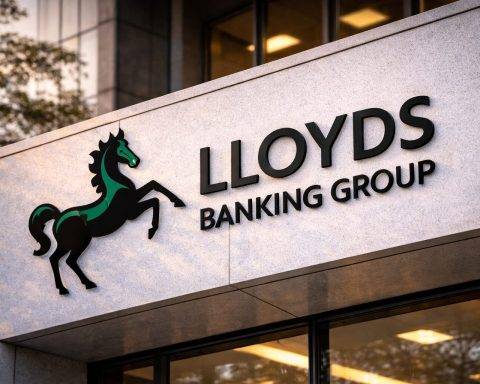- In Q2 2025, Ray Dalio’s Bridgewater more than doubled its Nvidia stake and added to Alphabet and Microsoft.
- Chase Coleman’s Tiger Global bought millions more Amazon shares and increased positions in Alphabet, Nvidia, Microsoft and Meta.
- A Bank of America fund manager survey in August 2025 named “long the Magnificent 7” the world’s most crowded trade, with 45% of respondents.
- On August 14, 2025, Oracle and Alphabet’s Google Cloud announced a partnership to offer Google’s Gemini AI models through Oracle Cloud, with Vertex AI integrated on the back-end.
- Insiders revealed talks to sell about $6 billion of OpenAI shares to investors led by SoftBank, valuing OpenAI at roughly $500 billion.
- OpenAI’s revenue reportedly doubled in the first seven months of 2025 and is on track for a $20 billion run rate by year-end, with ChatGPT usage reaching 700 million weekly active users.
- Tesla said it would shelve its Dojo AI supercomputer and pursue a unified AI chip roadmap named “AI5” and “AI6”, relying on Nvidia GPUs in the interim.
- Eli Lilly signed a deal worth up to $1.3 billion with Superluminal Medicines to develop GPCR-targeted obesity and metabolic drugs using AI, with Lilly gaining exclusive rights to discovered small-molecule candidates and Superluminal backed by Nvidia’s NVentures.
- Senator Hawley launched a probe into Meta’s AI policies after a Reuters exposé on chatbots engaging in romantic chats with minors, while Meta reorganized into four units within a new “Superintelligence Labs” and raised 2025 capex to $72 billion.
- Palantir Technologies surged about 144% year-to-date, trading around 80x sales and ~300x forward earnings, with shares slipping about 2% on Aug. 15, 2025, amid AI hype and skepticism.
Wall Street Doubles Down on AI Titans
Major investors are piling back into Big Tech on hopes that artificial intelligence will continue to fuel outsized growth. Fresh 13F disclosures show top hedge funds significantly boosted stakes in “Magnificent 7” AI winners during Q2. Ray Dalio’s Bridgewater more than doubled its position in Nvidia, while adding to Alphabet and Microsoft holdings reuters.com. Chase Coleman’s Tiger Global bought millions more Amazon shares and added to positions in Alphabet, Nvidia, Microsoft and Meta reuters.com. This marks a sharp reversal from earlier caution and underscores conviction that these AI leaders will drive further market gains ts2.tech ts2.tech. Indeed, a Bank of America fund manager survey just crowned “long the Magnificent 7” as the world’s most crowded trade (identified by 45% of respondents) reuters.com. These seven U.S. tech giants – from Nvidia to Tesla – have been “must-own” pillars of 2025’s rally, collectively responsible for a dominant share of the S&P 500’s year-to-date gains ts2.tech. Investors are rotating back into these momentum names after a mid-year pullback, betting that heavy AI investments will translate into sustained growth.
Cloud Giants Forge AI Alliances
Even as they compete, tech titans are teaming up to spread AI services. On Aug. 14, Oracle and Alphabet’s Google Cloud unveiled a landmark partnership to offer Google’s next-generation “Gemini” AI models through Oracle’s cloud platforms reuters.com. The deal lets Oracle’s enterprise customers access Google’s most advanced generative AI for text, image and video creation via Oracle’s applications, with Google’s Vertex AI integrated on the back-end reuters.com. (Oracle struck a similar AI distribution deal with Elon Musk’s startup xAI in June reuters.com.) For Oracle, providing a “menu” of third-party AI tools aligns with its strategy rather than pushing only home-grown tech reuters.com. For Google, it’s “another step to expand the reach” of its AI cloud offerings and win corporate clients away from rivals like Microsoft Azure reuters.com. Oracle’s stock ticked up on the news, while Alphabet shares hovered near record highs – reflecting optimism that such partnerships will broaden enterprise AI adoption (and cloud revenues) across industries ts2.tech. In a related big-ticket investment, insiders revealed current and former OpenAI employees are in talks to sell $6 billion worth of OpenAI shares to investors led by SoftBank reuters.com. The mooted secondary sale – valuing the ChatGPT maker at a staggering $500 billion (up from $300B in prior rounds) – underscores frenzied demand to bankroll leading AI firms reuters.com reuters.com. SoftBank is already anchoring a separate $40B primary funding for OpenAI, and this move would further cement its role backing the AI frontier. OpenAI’s meteoric growth supports the lofty valuation: revenue doubled in the first seven months of 2025 and is on track for a $20B run rate by year-end reuters.com, with ChatGPT usage surging to 700 million weekly active users (from 400 million in February) reuters.com.
Tesla’s Dojo U-Turn Boosts Chipmakers
In the EV sector, Tesla made waves by pivoting its AI strategy – a surprise that cheered chip investors. CEO Elon Musk took to X (Twitter) to announce Tesla is sidelining “Dojo,” its in-house AI supercomputer project, after years of development. Musk bluntly called the stand-alone Dojo system “an evolutionary dead end,” saying Tesla will instead focus on a new unified AI chip roadmap (internal projects dubbed “AI5” and “AI6”) nasdaq.com. Essentially, it no longer made strategic or economic sense for Tesla to design multiple custom AI chips for niche uses. AI6 will be a more generalized platform handling both neural network training and inference across Tesla’s self-driving and robotics efforts – obviating the need for a special-purpose Dojo computer nasdaq.com. Crucially, this shift implies Tesla will rely on external semiconductor suppliers (like Nvidia) in the interim while it refocuses its AI hardware plans nasdaq.com. Analysts hailed the move as a “win for Nvidia” – effectively a tacit acknowledgment that even the most ambitious automaker cannot easily out-innovate the established AI chip leaders nasdaq.com. “It reinforces the idea that Nvidia remains king of the AI realm,” noted one tech analyst, since Tesla will likely remain a buyer of Nvidia’s GPUs rather than replacing them with its own silicon nasdaq.com. Nvidia’s investors welcomed Musk’s headline-grabbing pivot, which reaffirms Nvidia’s central role in the AI infrastructure of autonomous vehicles. More broadly, industry experts believe other automakers will reach the same conclusion: building custom AI hardware from scratch is costly and time-intensive, so many will stick with proven chip partners. Tesla’s strategic U-turn thus solidifies Nvidia’s footing in emerging markets like self-driving cars and robotics – bolstering the chipmaker’s long-term growth narrative.
Pharma Giant Bets $1.3 Billion on AI Drug Discovery
Artificial intelligence’s reach extends far beyond tech – into healthcare’s biggest players. In a blockbuster biotech partnership, Eli Lilly announced a deal worth up to $1.3 billion with AI startup Superluminal Medicines to develop new obesity and metabolic disease drugs reuters.com. Unveiled on Aug. 14, the collaboration gives Lilly exclusive rights to any small-molecule drug candidates discovered using Superluminal’s proprietary AI platform, which focuses on a class of protein targets called GPCRs (G-protein-coupled receptors) involved in metabolism and cell growth reuters.com. Lilly dominates today’s $150B obesity treatment market with drugs like Zepbound, but is racing to find next-generation therapies – including pills – to extend its lead reuters.com. By tapping Superluminal’s AI, Lilly hopes to accelerate discovery of novel oral drugs that mimic the success of blockbuster injectables. “GPCRs have established themselves as very important targets… but we’re at the very early stages of exploration,” Superluminal CEO Cony D’Cruz told Reuters, emphasizing how AI can rapidly probe these complex biological targets ts2.tech. The Boston-based Superluminal – notably backed by Nvidia’s venture arm NVentures reuters.com – will receive upfront payments, R&D milestones, an equity investment, and potential sales royalties under the deal ts2.tech reuters.com. Its own lead drug candidate (for rare genetic obesity) is not part of the Lilly partnership, indicating Lilly is mainly interested in new discoveries going forward reuters.com. This deal comes on the heels of Lilly’s rival Novo Nordisk striking a $2.2 Billion AI-driven drug pact in May, highlighting an industry-wide race to leverage AI in drug R&D ts2.tech. While Lilly’s stock reaction was muted (investors have anticipated major AI investments by Big Pharma), analysts lauded the move as reinforcing Lilly’s cutting-edge pipeline and long-term growth story ts2.tech. The hefty price tag shows how established companies are willing to spend big on AI innovation beyond the tech sector – in this case to maintain an edge in the booming weight-loss drug market.
Red-Hot AI Stocks Meet Reality Checks
Amid 2025’s AI euphoria, some high-flying stocks are facing fresh scrutiny over lofty valuations. Case in point: Palantir Technologies, a data analytics firm that has aggressively repositioned as an “AI platform” provider, saw its stock skyrocket ~144% year-to-date, making it one of the S&P 500’s top performers ts2.tech. The latest leg up came after Palantir raised its annual revenue outlook and notched a second straight profitable quarter, sending shares to multi-year highs reuters.com. But this week, famed short-seller Andrew Left (of Citron Research) revealed he is betting against Palantir – openly calling its valuation “unjustifiable” despite admiring the business model ts2.tech ts2.tech. “I’ve stopped even looking at the ratio because it’s become so absurd,” Left said, noting Palantir trades around 80× sales and nearly 300× forward earnings, far richer than even Nvidia at its peak businessinsider.com. By his math, “the stock could get cut by two-thirds” and still be expensive businessinsider.com. He also warned that Palantir’s avid retail fanbase (a legacy of its meme-stock popularity) could be a double-edged sword if momentum falters businessinsider.com. These barbs injected a dose of realism – Palantir’s shares slipped about 2% on Aug. 15 amid the broader tech pullback, paring recent gains. The episode encapsulates a broader debate around AI stocks: soaring growth potential vs. frothy valuations. Bulls argue companies like Palantir are at the forefront of an AI revolution driving unprecedented demand (Palantir just inked a multi-year AI partnership with Japan’s Sompo, for example), while bears counter that no company can sustain nosebleed multiples forever ts2.tech ts2.tech. As Left put it, “there’s never been a company with that type of [valuation] that’s not corrected 50%.” Expect this tug-of-war between fundamentals and FOMO to continue as investors sift long-term AI winners from hype.
Other corners of the market are also in flux. Traditional chipmaker Intel – which has lagged badly in the AI silicon race – got an unusual boost on Aug. 15 after a report suggested the U.S. government might take a stake in the company. Intel’s shares jumped nearly 4% on Friday on hopes of new federal aid for its turnaround reuters.com. Bloomberg News reported that President Trump’s administration is considering using CHIPS Act funds to buy an equity stake in Intel, following a meeting between Trump and Intel’s new CEO Lip-Bu Tan reuters.com reuters.com. (Trump had recently demanded the CEO’s resignation over “conflicted” ties to Chinese firms reuters.com.) Such a move would be unprecedented – effectively making the government a shareholder – and comes as Washington pushes to reshore semiconductor manufacturing. Market analysts reacted cautiously: state backing “could be a game-changer” in shoring up confidence and buying Intel time, noted Hargreaves Lansdown’s Matt Britzman, “but it doesn’t fix the underlying competitiveness gap” in Intel’s technology reuters.com. Despite billions in subsidies, Intel is still years behind TSMC in advanced chip nodes and has “virtually no presence” in the booming AI chips market dominated by Nvidia reuters.com. Bernstein analysts bluntly added that without a solid road map, pouring tens of billions into Intel could be like “setting money on fire” reuters.com. In short, government investment might boost morale and buy runway, but Intel’s steep technical challenges in the AI era remain unsolved reuters.com reuters.com.
Meanwhile in Europe, a very different AI stock story has unfolded: a selloff in “AI adopter” companies amid fears they’ll be left behind. Since mid-July, shares of several European enterprise tech firms – which had been bid up as proxies for AI – have tumbled sharply reuters.com. For example: Germany’s software giant SAP is down ~14%, UK’s Sage Group ~11%, London markets operator LSEG ~14%, and France’s IT consultancy Capgemini ~12% over the past month reuters.com. The rout accelerated this week as investors reassessed the threat from new AI advances reuters.com. Just last week OpenAI released its latest GPT-5 model, and Anthropic unveiled a finance-focused Claude AI for Wall Street, each “multiples more capable” than prior generations reuters.com. “We’re at the stage now that with every iteration of GPT or Claude… the market’s thinking: ‘oh, wait, that challenges this business model,’” explained Kunal Kothari of Aviva Investors, noting that ever-more-powerful generative AI could upend traditional software, data analytics and consulting services reuters.com. The jitters were exacerbated by a U.S. broker’s downgrade of Adobe on Monday (citing AI disruption risk), which sent ripples through European tech shares reuters.com. It hasn’t helped that many of these European firms were trading at high valuations after riding the AI hype wave. Now some bargain-hunters are eyeing the dip, but the episode underscores growing angst that fast-moving AI innovation may bypass companies seen as AI “users” rather than creators. Notably, this European pullback contrasts with broader market gains – since mid-July, London’s FTSE 100 index is up 2.5% and the pan-European STOXX 600 up ~0.6% reuters.com. In other words, the AI adopters’ slump is a targeted correction, even as overall sentiment remains positive. It’s a reminder that in the AI gold rush, investors are distinguishing picks-and-shovels leaders from those at risk of disruption.
Regulation and Outlook: Watchdogs Weigh In
The AI boom hasn’t escaped regulators’ gaze, as lawmakers grow wary of its risks. On Aug. 15, U.S. Senator Josh Hawley launched a probe into Meta Platforms’ AI policies following a Reuters exposé about Meta’s chatbot guidelines reuters.com. An internal Meta document had revealed that the company’s AI chatbots were at one point permitted to engage in “romantic or sensual” chats with child users – obviously alarming both Republicans and Democrats in Congress reuters.com reuters.com. Hawley sent a sharp letter to Meta demanding to know “who approved these policies, how long they were in effect, and what’s been done to stop this conduct” reuters.com. Meta says it removed the problematic guidelines (which it claims were errors inconsistent with its policies) once questions were raised reuters.com reuters.com. Still, the incident has prompted bipartisan calls for a broader investigation into whether Meta is adequately safeguarding AI systems – especially those interacting with minors and providing medical advice reuters.com reuters.com. This comes as Meta CEO Mark Zuckerberg is heavily touting AI as the company’s future. In fact, Meta has been radically reorganizing to accelerate its AI efforts – this week planning its fourth restructuring of AI teams in six months reuters.com. According to The Information, Meta will split its new “Superintelligence Labs” division into four units (including a “To Be Determined” research lab, a product team for its Meta AI assistant, an infrastructure group, and the long-term Fundamental AI Research team) in yet another overhaul reuters.com. Zuckerberg has signaled he’s “all-in” on pushing toward artificial general intelligence and is pouring resources into massive AI data centers reuters.com. Meta even raised its 2025 capital spending budget by $2 billion (now up to $72 B) primarily to fund AI compute power reuters.com. But as the Hawley probe shows, the AI race is raising red flags. Lawmakers are increasingly keen to ensure guardrails around AI deployments – especially in sensitive areas like child safety and medical information – even as companies scramble to out-innovate each other.
Market watchers caution that some degree of moderation may set in after the wild AI-driven stock gains of 2025. The consensus is that AI will indeed transform industries and drive growth, but not every company riding the buzz will be a winner – and not overnight. As one veteran strategist noted this week, many AI stocks “really seem to be growing on a trend that’s going to be very difficult to sustain” reuters.com. The coming months will bring another wave of earnings reports, product launches, and (likely) regulatory proposals that will test the durability of the “AI premium” in equities. For now, the AI stock boom marches on – powered by huge investor enthusiasm, mega-cap momentum, and blockbuster deals – but tempered by early signs of skepticism and oversight that savvy observers say are healthy for the market’s long-term balance.
Sources: Reuters, Nasdaq/Motley Fool, Business Insider, TS2 Space, Bloomberg, The Information. reuters.com reuters.com reuters.com nasdaq.com ts2.tech businessinsider.com reuters.com reuters.com reuters.com









